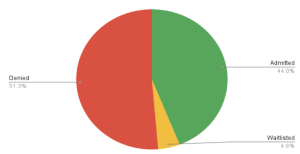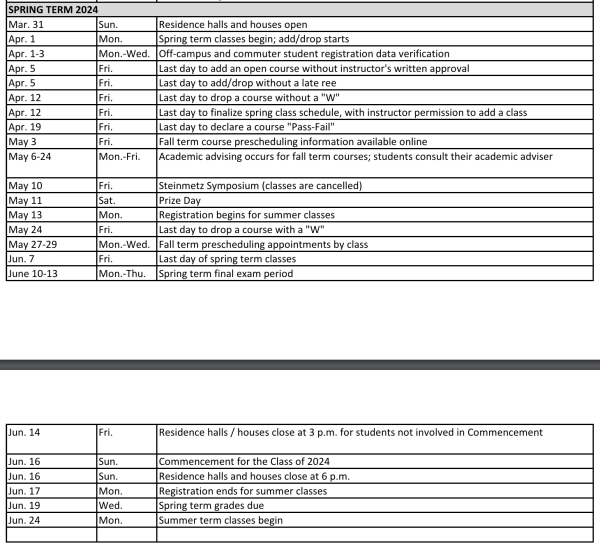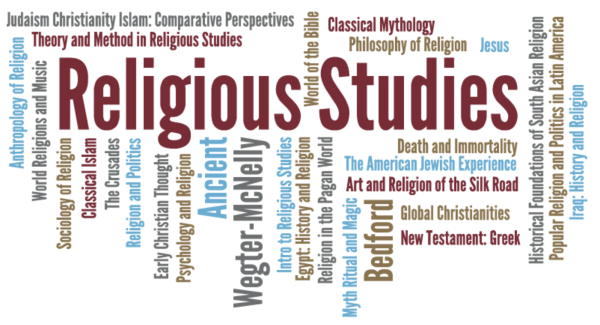The role of ambiguity in a citizenship-centered America
September 19, 2019
Human’s exist in a strange position between various dualities such as subject and object, good and evil, individual and member of a group, etc., all of which comprise of what it means to be part of humanity. In fact, to be a human being is to simultaneously embody all of these dual natures, landing us in a gray state of ambiguity.
However, the recognition of our ambiguous condition can drive a sense of unease, as we naturally take great comfort in being able to discern exactly who, what and why we are at any given time. In an effort to alleviate this anxiety, Simone De Beauvoir, in her work The Ethics of Ambiguity, suggests that humans have historically organized themselves in such a way as to breakdown and simplify exactly who we all are in order to make our existence less ambiguous. She argues that we strive “to reduce mind to matter, or to reabsorb matter into mind, or to merge them within a single substance.”
For example, one is born in a sovereign nation to which he or she becomes a citizen, unconsciously accepting both a marked identity and a duty, a contract which obliges support for one’s place of birth. Yet our essence is not solely that of allegiance to the state and the social body, or ourselves, our individual desires and inclinations, but rather an amalgamation of this ambiguous duality. In this way, we are constantly trying to find a balance between where our individualism ends and our collectivism begins and vice-versa.
Resiltantly, it is this indefinite and unknowing reality that drives the intentional reduction of one side of the duality so that one may exist in a rationalized, seemingly concrete universe. In doing so, we establish many rigid categorizations for ourselves and others as a way of making sense of the world around us, all the while restricting one’s freedom to be something or someone that deviates from their assigned identity.
Exemplified by Beauvoir, “Man’s passion is useless; he has no means for becoming the being that he is not.” In the process of constructing concrete identities so to escape ambiguity, we confine ourselves within a structure that seeks to limit our freedom of choice.
In the public discourse of our country, citizenship is stripped down to whether or not an individual was born in the United States of America. And, unfortunately, that is the correct lens to legally understand what it means to be a citizen. Our constitution defines citizenship in one sentence saying, “All persons born or naturalized in the United States… are citizens of the United States” (U.S. Constitution, 14th Amendment). But the deeper meaning of citizenship is not bred from its legal definition, rather it is bred from performance of civic duty.
John F. Kennedy told us to “ask not what your country can do for you—ask what you can do for your country” (Inaugural Address, 1961). His quote exemplifies the crux of being an American citizen, which is evidently more than what its legal framework would have you believe. It means vying for social change, giving back to the community and providing for your family. It means sacrificing a little more of what you have so someone less fortunate has enough to eat. It means embodying the values that made America the leader of the free world in only 243 years.
Being a citizen is about progressive action and engagement to your country and to the people in it. Citizenship has to be earned through the performance of our duties, otherwise the ideal of being an American is lost.
In the current political climate, the media and the government have placed so much weight on the legality of citizenship that its civic definition falls firmly into the backdrop. This is dangerous because it obscures the way we understand our sense of belonging. We have been conditioned to believe someone not born in America does not belong in America. But this construct ignores the deeply rooted ideals of a nation advanced by the will of the people.
Valuing a person’s birthplace over their contributions, work ethic and morality is inconsistent with the philosophies of our past leaders like JFK and Barack Obama. Citizenship is about duty and values, so our sense of belonging ought to be primarily understood through that scope.
Yet, within our constructed legal framework, to be an American is to have been born in America, serving as a paradox to the freedom for which the state advocates. Genuine freedom, according to Beauvoir, demands the freedom of others, for one cannot will their own freedom without the combined collective effort.
As members of a society, we maintain the ability to exist and live uniquely within a broader framework that is only realized by the freedom of other people. The freedom we possess in the modern era has been established not only by those of the past who have willed us the freedom we enjoy today, but also by the many people working around the clock, upholding our lifestyle in the present and even going into the future.
This piece is not meant to argue against the citizenship clause of the constitution (or even provide a holistic list of all the ways to be a citizen). It is important to have rules and guidelines for entry into the country. But when you read the countless stories of undocumented immigrants toiling around the clock to make a living and provide for their families, it is clear they embody the values that define our country and are as American as people born here. They take the jobs most real Americans do not want and have become an integral, necessary, part of our workforce and boon to the economy.
So why can’t we call them citizens? They work hard, provide for their families, support our country and pay taxes, but because they were not born here they do not belong. To me, that does not seem fair. Where you are born is a lottery, completely random—it has nothing to do with the people themselves, so why does that become the most important factor when determining citizenship?
Instead, let’s look to values and duty. Let’s look at citizenship as though it has to be earned. That way we can start favoring the character of the people in our country as opposed to the birthplace of the people in our country.








